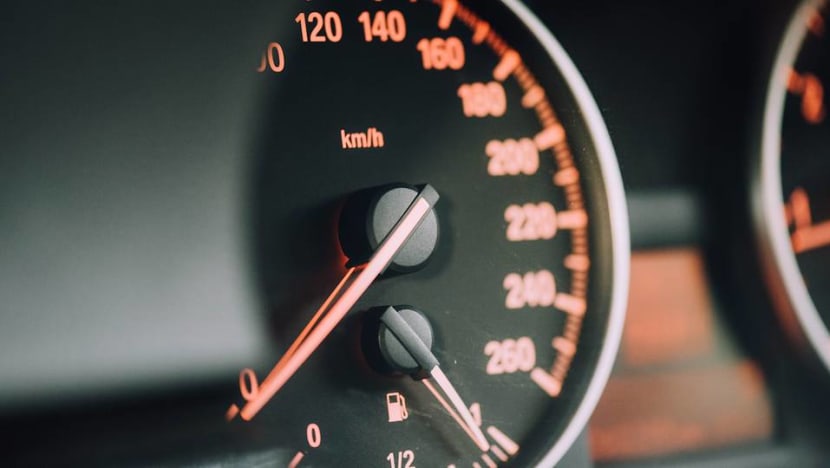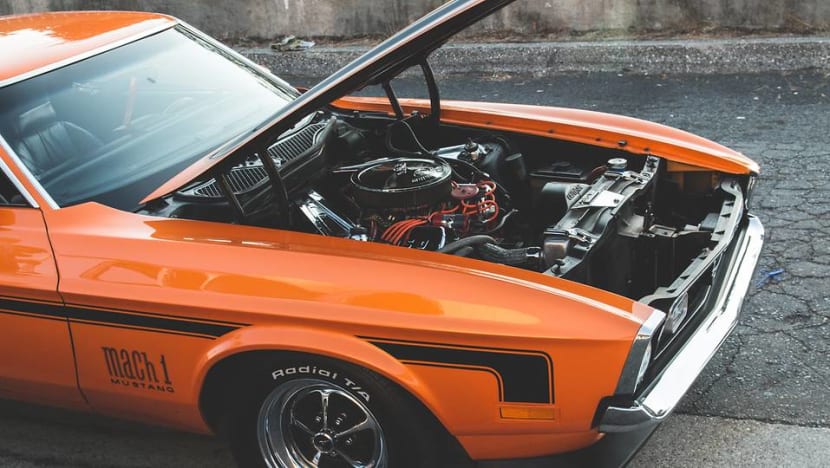commentary Commentary
Commentary: Picking a fund is just like picking a car
Picking a fund to invest in can seem intimidating and technical but consider the similarities with another big-ticket item many of us buy – a car, says HSBC Global Asset Management’s head of Southeast Asia.

(Photo: Unsplash/Ron McClenny)
SINGAPORE: In recent months, COE prices have crashed to its lowest levels in eight years, which might entice you to book a test drive.
But before you take the leap, you probably have a few considerations: What kind of car do I need – a sporty convertible or a functional family-friendly MPV (or multi-purpose vehicle)?
Should I go for a Japanese car or a European one? How reliable is it, and – probably the most important question – will it fit into my budget?
Interestingly, the thought process and factors to consider when choosing a car is surprisingly similar to that of choosing a mutual fund. It’s the return of investment between the two that may differ.
KNOW YOUR WEALTH NEEDS AND RISK TOLERANCE
Much like buying a car, the first step when investing is understanding your needs and objectives. If you’re an investor looking for a smooth investment journey over the long term, then a fixed income fund may be a more suitable option, instead of a relatively higher risk equity fund that may deliver a higher return but a more volatile journey.
However, if you prefer to balance growth and stability, multi-asset funds might be the way to go.
Depending on your risk tolerance and investment needs, they have a combination of equities and fixed income that could give you a more balanced and diversified experience.
Understanding what you need is the first step to making the right choice. But if you need investment advice, it’s best you speak to your relationship manager as financial markets can sometimes be complex and dynamic in nature.
IMPORTANCE OF GEOGRAPHIC ALLOCATION OVER BRAND
For some buyers, branding is important as you might associate certain brands with particular characteristics. Case in point, German-brand cars are known for their engine performance while Italian-brand cars are loved for their flashy exteriors.
However, if you look past the brand, you might find gems that could offer you attractive performance at a better value.

For example, funds that invest in Asian equities and bonds might not be as “branded” as others. However they are becoming more popular as the valuations of some of these assets are looking more attractive now and their correlation with the rest of the world is historically lower, which can provide your portfolio with better diversification.
UNDERSTAND PERFORMANCE EXPECTATIONS AND VOLATILITY
Performance is another major criteria for a car buyer or a fund investor. Just like how you would want to know how fast a car can go, you’ll also want to know what the fund’s peak performance is. However, if you’re blinded by just one metric, like a fund’s performance or yield, then you may be in for a dangerous ride.
I prefer a more balanced approach. Instead of looking solely at speed (or the performance of the fund), I like to also look at braking distance (or the volatility of the fund) as the shorter the braking distance the better the car will be able to avert a road accident when the junction or round-about comes up.
Similarly, if you take into account both fund performance and fund volatility, you can end up with a more meaningful measurement of your risk-adjusted return.
Reliability is also an important factor. After all, no one wants to be stranded with a bad investment.
A fund’s reliability can be measured by looking at the historical drawdowns of the fund during down times and the number of credit events suffered in the past. A fund with a lower number of drawdowns might be a better option for an investor to build a multi-terrain portfolio that can navigate the bumps and potholes of market cycles.
Apart from historical reliability, a wise investor also needs to look under the bonnet. How does the engine look? Are all the pieces properly assembled?

In asset management terms, we refer to this as the investment process.
Cars and funds can have very different engines or investment processes, so before you choose a fund make sure you know how the fund is managed, what the investment style is and how the fund manager allocates between assets. The investment process will help you to better understand the future reliability of the fund.
ESTABLISH A WEALTH INVESTMENT PLAN
Finally, and probably the most important factor when it comes to buying a car or investing in a fund, is determining your budget and understanding the full costs that you may incur. Funds have different minimum investment amounts and upfront sales charges to cater to various types of investors.
An investor should be aware of the fund’s operating costs, such as management fees and administrative expenses. Just like a supercar will incur higher taxes and insurance fees, a high octane active equity fund will likely charge higher management fees.
Costs are key but remember that a wise investor tends to look for value for money rather than simply low costs.
Once you make a decision, I suggest that you try to stick to it. There will be a flashier car or investment fund launched to the market every day but in my experience having a long-term horizon tends to pay off.
The similarities in the thought process behind buying a car and investing in a fund is definitely more similar than you would think. However, there is one stark contrast.
A fund is an asset that can drive up returns for your investment portfolio, while a car tends to depreciate over time. So if a car is not an absolute necessity for you now, why not fuel your portfolio with funds instead? After all, they may just give you a better ride.
Puneet Chaddha is head of Southeast Asia at HSBC Global Asset Management.















